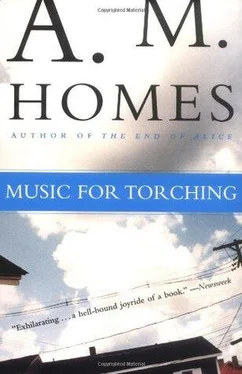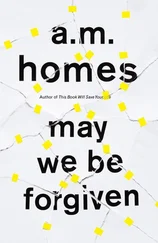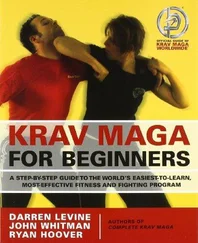"I don't think we should tell everybody that it was stupidity."
"Who's everybody?"
"Our friends," she says. "It's stupidity, not a citizenship award, it's not something to brag about."
"We're covered," Paul says. "That's what counts. Besides, it's funny. Stupidity is funny. Hey, if you can't laugh at yourself, then you certainly can't laugh at anyone else."
"The house wasn't stupid-we were," Elaine says.
"Would you like some tea?" he asks, still cheerful.
"Please."
He pours for her.
Paul is looking at Elaine as though she is a stranger, as though they've never met. He is looking at her with a completely open face-absent of history-like a doe-eyed idiot. He is looking at her as though he is in love with her.
Elaine is tempted to ask, Do you know who I am? To remind him that she is his wife, the one he fights with all the time. But, in keeping with the idea of noticing less, she lets it go.
"The first date I ever took a girl on was to a Chinese restaurant-on Palmer Avenue in Bronxville," he tells her. "There was a red neon sign in the window-and about ten tables. It was the only 'foreign' restaurant in town. Her name was Sally Potter. I ordered chow mein. She didn't eat anything. Not a bite. Worms, she told me later. Her mother had told her that Chinese food was made of worms."
Elaine is trying to calm down, to warm up, to allow herself to be open to Paul. She's frustrated with herself for being so angry, for making things more difficult.
"Let's pretend we've just met," she says. "Let's pretend we're on a date."
He seems surprised. "Don't you want to talk about the house?" he asks. "About what we're going to do? I thought we might talk about the deck, about the French doors."
"Should we pretend we're engaged, then?" she asks.
"That would be nice," he says. "And let's pretend we get along."
"Fine," she says. Fine.
The waitress brings the food, and they have a wonderful dinner, talking about the house, about windows and doors.
He is trying, and she is trying, and it is rare that they are both trying at the same time.
Usually he tries until he gets tired and quits, and then she tries for a while and gets mad at him for not noticing her effort, and they push and pull at each other until finally they both stop trying. But right now, for this moment, their efforts are in sync, and it seems to be working.
Near the end, Paul leans across the table and begins eating off Elaine's plate. He takes a piece of crab from her, pops it into his mouth, and says, "I love you. I love you so fucking much." And in that moment he feels it, he really feels it.
"That's nice," Elaine says. "I love you, too," she adds, pulled into the mood of generosity.
For the moment they are their fantasies of themselves, their very best selves, the people they'd like to be, and then just a minute later they are once again their more familiar selves-petty, boring, limited.
"So what did you do with Liz all day?" Paul asks.
"Not much, some shopping, the things on the Post-its." Elaine pauses. "What's the problem with you and Liz anyway? Why do you hate her?"
"She's your friend. She has you in a way I never can," Paul says. "You tell her things about me, how horrible I am, how much you hate me. I hate her because she hates me-it's simple."
"She doesn't hate you," Elaine says. "You want the truth? I hardly talk to her about anything personal. I don't know what to say. I'm afraid to say anything to anyone-they'll think I'm nuts." She pauses. "You're the one who tells people about us-you called what's-his-name, Mr. Blow Job, Tom, from the motel. Why Tom? Why all of a sudden did you think of Tom?"
Paul shrugs. "He's smart and calm, and I knew he'd help us."
"What about me? What about us? You hid in a shower stall confessing to someone who gave you a blow job in college, while I sat on the toilet waiting.."
"I'm sorry."
"Sorry for what?" Elaine wants to know. "Let's stop," she says. "Let's just stop for now. We can take a night off from it, can't we? Or are we so addicted?"
They stop.
"Should I call and check on Sammy?" Paul asks.
"I'm sure he's all right," Elaine says. "It just frightened me. His attacks always frighten me."
Paul squeezes her arm sympathetically and plucks the last piece of chicken from her plate.
She doesn't tell Paul that she's always secretly glad when she misses one of his attacks, when she hears about it after the fact, when things are okay again-like over the phone from the school nurse, or in a note from the soccer coach. She is always terrified that one day the puffer won't work, one day it will be worse, one day there won't be anything she can do.
"I'll call," he says.
"Leave him alone," Elaine says.
Their fortune cookies come, they crack them simultan- eously-two fortunes fall out of Elaine's cookie. "You are going places," her first fortune says. "You have come a long distance," the second says. "And yours?" she asks Paul.
"'You are lucky in work and love.'"
As they walk from the restaurant, Paul takes Elaine's arm, pulling her close-she feels good against him, and he feels good to her, large, comforting, protective.
"Thanks for dinner," she says.
"You're welcome," he says.
In the car en route to Pat and George's, Elaine is remembering this morning and worrying what will happen when Pat opens the door-will Pat throw her arms around Elaine and kiss her hello? Will she make a scene? And if she does, what should Elaine do? She imagines ignoring Pat-pretending it never happened.
"Slow down," she tells Paul.
"I'm only going thirty," Paul says.
Elaine wishes they weren't going at all. She wishes they could just go home, get in their own bed, with the children down the hall, with the damned hole in the dining room wall, and call it a night.
Paul parks by the curb.
All the lights in the Nielsons' house are on. The house is radiant, vibrating against the night sky; the glow spills across the lawn, onto the neighbors' grass and brushing against the very foundations of other people's homes, drowning out even the streetlight at the curb.
They ring the bell-pealing chimes split the night. Nothing happens. They ring again. Still nothing. Paul goes into his pocket for the key; Elaine stops him. "They're home," she says. "You don't use the key when people are home." And so they ring again. And again. It starts to feel strange, otherworldly; Paul and Elaine in the night, stranded, on the small, dark front stoop while the rest of the sprawling ranch beckons effervescently.
Paul walks around the perimeter of the house, peering in the windows. He sees the little M's in a room and taps the glass. They scream. "Got 'em," he calls to Elaine.
She shifts the shopping bag she's carrying back and forth from hand to hand.
A minute later the front door opens, the glow washes over them, a blinding white light.
Читать дальше












